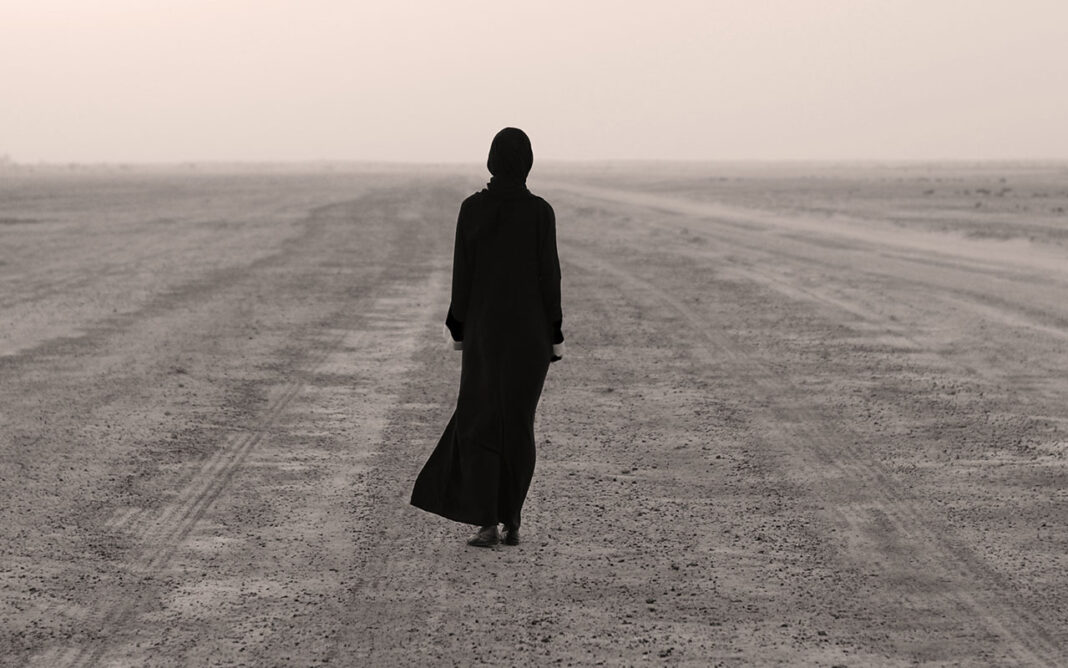By: Muhammad Iqbal Saghla

The gender-based expectations and behaviour that are imposed for people in a religious setting are referred to as gender roles. The proper behaviour, duties, and obligations for men and women within religious organisations are determined by these roles, which frequently reinforce conventional and hierarchical views of masculinity and femininity. Promoting gender equality and empowering women in religious settings requires an understanding of how these gender roles affect women’s rights and opportunities. Significant scholarly research has been done on how gender roles in religion affect women’s rights and opportunities. This difficult problem has been the subject of a research, all religions allocate different positions and works to different genders but overall we saw male dominance in religious matter, as Women have historically been barred from positions of power and leadership inside religious institutions by a variety of faiths. Women’s participation in decision-making and capacity to influence religious practises may be constrained by this exclusion. However, initiatives to overcome these restrictions have been launched recently, calling for a greater participation of women in positions of religious leadership. Stereotypical notions of femininity, such as caring, providing for others, and submitting, are frequently reinforced by gender roles in religion. Women may therefore be restricted to particular positions within religious groups, which will limit their access to education, employment possibilities, and personal freedom. Promoting gender equality and strengthening women in religious environments requires challenging these discriminatory norms.The traditional roles of women in Islam have been effected by various factors, including Quranic verses, Hadiths cultural practices, and historical contexts. Quranic verses and Hadiths play a significant role in shaping gender roles in Islam. Some verses, such as Surah An-Nisa (4:34), have been interpreted by some scholars as implying male authority over women. However, other verses emphasize equality and mutual respect between spouses, such as Surah Al-Hujurat (49:13). Similarly, Hadiths offer guidance on various aspects of life, including the treatment of women. However, their authenticity and interpretations can vary. It is important to recognize that interpretations of these religious texts are diverse and have evolved over time. Many contemporary scholars and Muslim feminists argue for a reinterpretation of certain verses and Hadiths to promote gender equality and women’s rights. They emphasize the principles of justice, equity, and respect found within Islamic teachings. Many articles and books contribute to the understanding of women’s roles in Islam. “The Veil and the Male Elite: A Feminist Interpretation of Women’s Rights in Islam” by Fatima Mernissi explores the historical and cultural factors that have shaped gender roles in Muslim societies. Additionally, “Gender and Islam in Africa: Rights, Sexuality, and Law” edited by Margot Badran and Arvind Sharma provides a comprehensive examination of the diversity of women’s experiences in various African Muslim contexts. In short the traditional roles of women in Islam have been influenced by Quranic verses, Hadiths, culture, and historical context. However, there are diverse interpretations and evolving practices that challenge traditional gender roles. Understanding this complexity requires an exploration of various scholarly works and engaging with the diverse voices within the Muslim community
Christianity is One of the main world religion, Christianity, had an important impact on gender roles throughout history. Here is a quick summary of the historical roles of women in Christianity, the impact of the Bible and its teachings on gender roles, and the modern viewpoints and developments within the religion. Christian women have traditionally been assigned distinct gender roles that frequently highlight their responsibilities as spouses, mothers, and carers. Interpretations of biblical texts, including as the New Testament’s lessons on submission and the idealisation of the Virgin Mary as the embodiment of feminine virtue, have had an impact on these roles. Christian scripture, notably the New Testament letters of Paul, has been read in ways that support established gender norms. Scriptures that tell wives to submit to their husbands, such Ephesians 5:22–24, have been cited to support male authority and female submission. It’s vital to remember that there are also scriptures that encourage respect for one another and cooperation between couples, such as Galatians 3:28 and Ephesians 5:21. Contemporary Viewpoints and Changes: In recent years, Christians have been more aware of the need to question and revaluate established gender norms. To advance gender equality and uplift women in the religion, several Christian organisations and academics have engaged in theological and scriptural reinterpretation.
In several civilizations across the world, the connection between religion and women’s rights has been the focus of intensive discussion and investigation. While religion can offer spiritual guidance and a sense of community, it can also limit women’s access to religious spaces, their ability to participate in religious leadership, affect their autonomy and ability to make decisions, and limit their opportunities for educational and professional advancement. Women have historically had less access to leadership roles within religious institutions due to several religious traditions. Gender inequality is strengthened by this exclusion, which also maintains patriarchal power systems. Several religions, including Christianity, Islam, and Judaism. Due to these restrictions, women are less able to influence religious doctrine, communal choices, and the general growth of their specific religion groups these restrictions are frequently supported by conventional readings of religious texts, supporting patriarchal norms and impeding women’s religious expression. Religious restrictions may have a substantial influence on women’s autonomy and decision-making. Sometimes, stringent gender roles are prescribed by traditional interpretations of religious scriptures and teachings, emphasising women’s subjugation and submission to male authority. This may limit the decisions that women may make about their bodies, education, work, and family planning. According to a research by Jones and Bradley (2020), women who follow strong religious ideas may have less agency, which limits their ability to govern their life. Religious restrictions may also limit women’s access to employment and higher education. Some religious doctrines and customs prohibit women from pursuing further degrees or restrict their entrance to particular academic disciplines. Religious restrictions’ effects on women’s rights are a complicated, nuanced problem. Women are marginalized within religious contexts due to limitations on their ability to participate in leadership roles, barriers preventing them from entering religious spaces, influences on their autonomy and ability to make decisions, and consequences for their educational and economic opportunities. Fostering an inclusive and empowering atmosphere for women within religious groups requires promoting gender equality and opposing patriarchal interpretations of religious teachings.Since the beginning of time, various religions play relegated particular parts and assumptions to people in view of their orientation, frequently building up customary male centric designs. These orientation jobs have advanced after some time, affected by social, social, and authentic variables. Women have frequently been allotted subordinate jobs, restricting their support in authority, strict services, and dynamic cycles. In any case, it is vital to take note of that translations of strict texts can fluctuate across various networks, prompting different practices and understandings of orientation jobs. Contemporary models feature the continuous effect of orientation jobs on women’ privileges inside unambiguous nations or networks. For example, in a few Centre Eastern nations, customary translations of Islam have prompted the implementation of severe orientation isolation and limitations on women’ opportunity of development and articulation. Essentially, inside specific moderate networks in different nations, orientation jobs established in strict convictions have restricted women’ admittance to training, work open doors, and political portrayal. Advancing orientation fairness inside strict structures is a mind boggling try that requires tending to profoundly imbued convictions, customs, and power elements. This article investigates the difficulties and potential open doors for change in propelling women’ privileges inside strict networks. It examines distinguishing hindrances to orientation equity, advancing exchange and support, featuring positive instances of progress and strengthening, and techniques for tending to orientation based segregation and mistreatment. Strict structures frequently contain translations, precepts, and practices that sustain orientation based separation and disparities. Deterrents to orientation equity might incorporate inflexible orientation jobs, exclusionary rehearses, and man centric power structures. Recognizing these obstructions requires a basic assessment of strict texts, social settings, and verifiable translations. Researchers like Khaled Abou El Fadl, in his book “Talking in God’s Name: Islamic Regulation, Authority, and Women,” break down the convergences of religion and orientation to uncover prejudicial practices. Powerful change requires connecting with strict pioneers, researchers, and local area individuals in discourse and backing for women’ freedoms. Drives, for example, interfaith discourse, women drove developments, and grassroots associations assume a significant part in testing harsh practices. An unmistakable model is the “Our Voices” crusade, which unites strict pioneers from different practices to advance orientation equity and correspondence.
Featuring positive instances of progress and strengthening inside strict networks is fundamental for moving change. Accounts of women strict pioneers, researchers, and activists who challenge orientation standards give motivation and inspiration to other people. Books like “A Portion of the Sky” by Nicholas Kristof and Sheryl WuDunn shed light on people and associations attempting to inspire women inside strict settings. Procedures for tending to orientation-based separation and mistreatment require a multi-pronged methodology. Instruction and mindfulness projects can challenge conventional convictions and cultivate comprehension of orientation correspondence. Transforming strict translations and practices through women’s activist religious philosophy and relevant readings of consecrated texts can give an additional comprehensive and fair comprehension. Establishments and policymakers can authorize lawful assurances and promoter for orientation delicate approaches. Advancing orientation balance inside strict structures is a complicated undertaking that requires tending to impediments, advancing exchange, featuring progress, and carrying out methodologies for change. By drawing in strict networks in conversations about women’ freedoms, testing biased rehearses, and enabling women inside strict settings, huge headway can be made towards accomplishing orientation fairness. It is critical to team up with strict pioneers, researchers, and activists to guarantee that strict lessons and practices advance equity, correspondence, and strengthening for all people. Orientation jobs inside strict settings fundamentally affect women’ freedoms and potential open doors over the entire course of time. These jobs, frequently established in customary understandings of strict texts and social practices, have propagated orientation disparities and restricted women’ admittance to training, administrative roles, and dynamic cycles. Strict organizations and practices play had an impact in supporting man centric designs, confining women’ independence, and adding to oppressive practices, for example, orientation based savagery and inconsistent legacy freedoms. Various examinations and academic works have revealed insight into the negative impacts of orientation jobs in religion on women’ privileges. For example, in her book “The Coercion of Women,” thinker and women’s activist John Stuart Factory contends that the subjection of women is profoundly settled in strict lessons and has prevented their advancement and prosperity. Essentially, “Women and Orientation in Islam”by Leila Ahmed investigates how male centric translations of Islamic messages have restricted women’ organization and valuable open doors inside Muslim people group. A source of inspiration is fundamental to advance orientation fairness inside strict settings. This includes testing conventional translations that propagate orientation generalizations and segregation. Strict pioneers and organizations should effectively take part in revaluating their lessons and practices to guarantee that women are conceded equivalent freedoms and open doors. Drives that advance women’ authority and portrayal in strict establishments, as well as the consideration of different voices in religious talks, are vital stages toward accomplishing orientation fairness. Continuous examination, discourse, and coordinated efforts are of principal significance in this undertaking. Specialists, activists, and strict researchers ought to keep on exploring the convergence of orientation and religion, inspecting the authentic, social, and philosophical elements that add to orientation imbalances.
The writer is a freelance columnist.





